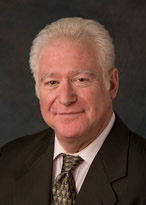A Special Education expert for five decades, Dr. Steven C. Imber served as a professor of special education from 1973 2021. He serves as a special education advocate, consultant to attorneys, parents and schools. He has conducted more than 600 independent educational evaluations.
Education:
- B.S. Psychology (High Honors) State University of New York at Buffalo
- Doctoral Studies, Clinical Psychology, University of Connecticut
- M.A. from the Department of Educational Psychology (Special Education - Learning Disabilities), University of Connecticut (Kappa Delta Phi)
- Ph.D. from the Department of Educational Psychology (Special Education -Emotional Disturbance (High Honors)
As a special education expert, Dr. Imber has worked on cases with children, adolescents and adults with a broad array of disabilities. He provides professional advocacy and consultation for children with the following disabilities:
- Autism Disorders
- Attention Deficit Disorders
- Emotional and Behavioral Disorders
- Emotional and Behavioral Disorders Intellectual Disabilities (Cognitive Deficits)
- Learning Disabilities
- Other Disabilities and Disorders
Areas of Expertise:
- Criminal Defense of Individuals with Disabilities – competence to stand trial and comprehension of Miranda Warning Rights
- Family Custody Matters involving Disputes regarding matters of Education and Special Education
- School Safety
- Special Education Regulations and Law
- Wrongful Death
Dr. Imber has been involved in cases from the following states: Alaska, Arizona, Connecticut, Delaware, Florida, Hawaii, Illinois, Massachusetts, Michigan, New Jersey, New York, Pennsylvania, Rhode Island, Tennessee, Utah, Vermont, Washington and West Virginia.
Depositions and Direct Testimony
Dr. Imber has testified in federal court, various district courts, superior court, family and probate court and in numerous due process hearings since 1975.
Below are listed recent cases in which Dr. Imber provided testimony during depositions or directly in various court matters:
- October 21, 2021, Family Court: State of Hawaii, Plaintiff
- October 19, 2021, Hancock County Circuit Court, West Virginia Criminal Action, Defendant
- September 29, 2021, Chicago Public Schools Cook County, Defendant
- July 6, 2021, Worcester County Probate and Family Court, Plaintiff
- August 10, 2021, Springfield District Court, Defendant
- May – June 2019, Commonwealth of Massachusetts, Division of Administrative Law Appeals, Bureau of Special Education Appeals BSEA, Plaintiff
Additional Accomplishments
- Published several articles in national and international journals within the fields of special education and psychology
- Presented at several local, state, regional, national and international conferences and meetings
Rhode Island Office
Sprout Building
166 Valley Street
Providence, RI 02909
Telephone: 401-421-4004 | New York Office
61-43 186th Street
Fresh Meadows, NY 11365
Telephone: 516-273-1961 |
Dr. Imber's CV is available upon request.
By: Dr. Steven Imber
In short, an expert who purports to claim that he (or she) can support the position of any client may be strong on an overindulged sense of confidence, but a bit weak on integrity. During the past several years, I have learned that issues that pertain to educational decision-making that is truly in the best interests of the child are complex, intriguing and deserving of a blend of careful scientific and intuitive analysis
By: Dr. Steven Imber
On March 22 the U.S. Supreme Court issued an 8-0 opinion in the case Endrew F. v. Douglas County School District, ruling in favor of the parents of a student with autism spectrum disorder who had charged that the district did not meet the requirements of the Individuals with Disabilities Education Act (IDEA. The parents argued that their child did not receive a free, appropriate public education (FAPE) that was mandated by Congress.
By: Steven Imber
Prior to 1966, the Supreme Court sought to define the Constitution's protection against self-incrimination with regard to juveniles, to the mentally impaired, and to psychological coercion by police (see Gallegos v. Colorado, 1962; Blackburn v. Alabama, 1960; Fikes v. Alabama, 1957; Chambers v. Florida, 1940).
By: Steven Imber
A parent has the right to an independent educational evaluation at the public expense if the parent disagrees with an evaluation obtained by the public agency.
By: Steven Imber
An independent educational evaluation (IEE) provides parents with an opportunity to obtain alternative sources of information concerning the present levels of performance of their children.











 Principal, Mo Kader, PhD, is a business and commerce professional specializing in three areas of expertise: Business Start-up and Development, Human Capital and Corporate Training, and International Education and Institutions. He has an in-depth knowledge of the education, corporate training, learning and development fields and of Small and Medium Enterprise (SME) and larger commercial enterprise.
Principal, Mo Kader, PhD, is a business and commerce professional specializing in three areas of expertise: Business Start-up and Development, Human Capital and Corporate Training, and International Education and Institutions. He has an in-depth knowledge of the education, corporate training, learning and development fields and of Small and Medium Enterprise (SME) and larger commercial enterprise.


